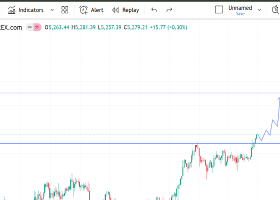Research Team at BBH, notes that China's reserves fell by a little more
than $87 bln in November, marking its third largest decline it has
recorded, and a little below the $94 bln drop reported in August.
Key Quotes
“The euro fell 4% in November. Although China has begun to adopt the IMF's best practice about reporting its reserve holdings, it is not yet fully transparent. Assuming that China's euro holdings matched the global share of allocated reserves (20.5% at the end of Q2), the depreciation of the euro alone accounted for an almost $29 bln decline in the value of China's reserves. The change in the euro's value accounts for a third of the decline in China's reserve holding.
In November, nearly all the reserve currencies depreciated against the dollar. The Swiss franc also fell 4%. Sterling lost 2.4%. The Canadian dollar slipped 2.1%, and the yen eased 2%. All told, it seems reasonable to assume that nearly half of the decline in China's reserves may be traced to the vagaries of the foreign exchange market.
That leads us to the second main consideration. Capital outflows. The yuan had strengthened in September and October following the devaluation in August. However, in November the yuan's decline resumed. It fell 1.25% in November. And the gap between the onshore and offshore yuan (CNY and CNH) widened, spurring talk of official action.
This is not to deny that China is experiencing capital outflows. Rather it is an attempt to keep those outflows in perspective. The Chinese yuan is not immune to the same force (divergence) that is lifting the US dollar against most currencies.
Being selected to be in the SDR change these dynamics. Being in the SDR has not made the Japanese yen, for example, a more international currency in terms of reserve usage, invoicing trade, or the denomination of global bonds. Those looking for substantial inflows based on last week's IMF decision may have to be very patient. One of the reasons that implementation of the new basket was delayed apparently was the push back by many members not wanting to have to rush whatever adjustment they would make in the year-end conditions.
Still, a September 2016 implementation time frame is more than required to address this concern. Instead, one cannot help bust suspect the extra time is to give China time for additional liberalization efforts. Even if a central bank wanted to boost yuan reserves, there need not be a hurry. The currency is likely to weaken further and there will likely be additional liberalization announced that may boost access, transparency and hedging capabilities.”
Key Quotes
“The euro fell 4% in November. Although China has begun to adopt the IMF's best practice about reporting its reserve holdings, it is not yet fully transparent. Assuming that China's euro holdings matched the global share of allocated reserves (20.5% at the end of Q2), the depreciation of the euro alone accounted for an almost $29 bln decline in the value of China's reserves. The change in the euro's value accounts for a third of the decline in China's reserve holding.
In November, nearly all the reserve currencies depreciated against the dollar. The Swiss franc also fell 4%. Sterling lost 2.4%. The Canadian dollar slipped 2.1%, and the yen eased 2%. All told, it seems reasonable to assume that nearly half of the decline in China's reserves may be traced to the vagaries of the foreign exchange market.
That leads us to the second main consideration. Capital outflows. The yuan had strengthened in September and October following the devaluation in August. However, in November the yuan's decline resumed. It fell 1.25% in November. And the gap between the onshore and offshore yuan (CNY and CNH) widened, spurring talk of official action.
This is not to deny that China is experiencing capital outflows. Rather it is an attempt to keep those outflows in perspective. The Chinese yuan is not immune to the same force (divergence) that is lifting the US dollar against most currencies.
Being selected to be in the SDR change these dynamics. Being in the SDR has not made the Japanese yen, for example, a more international currency in terms of reserve usage, invoicing trade, or the denomination of global bonds. Those looking for substantial inflows based on last week's IMF decision may have to be very patient. One of the reasons that implementation of the new basket was delayed apparently was the push back by many members not wanting to have to rush whatever adjustment they would make in the year-end conditions.
Still, a September 2016 implementation time frame is more than required to address this concern. Instead, one cannot help bust suspect the extra time is to give China time for additional liberalization efforts. Even if a central bank wanted to boost yuan reserves, there need not be a hurry. The currency is likely to weaken further and there will likely be additional liberalization announced that may boost access, transparency and hedging capabilities.”


